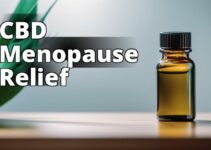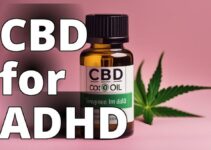Can cannabidiol, or CBD, be used to support respiratory health? In recent years, CBD has gained popularity due to its potential health benefits. In this article, we will discuss the benefits of CBD for respiratory health, the precautions one should take while using CBD for respiratory issues, and the potential risks of using CBD for respiratory health.
Understanding Respiratory Health
Respiratory health refers to the health of the lungs and respiratory system. Common respiratory illnesses and their causes include asthma, bronchitis, pneumonia, and Chronic Obstructive Pulmonary Disease (COPD). These illnesses can be caused by various factors, such as smoking, air pollution, allergies, and genetic factors. Respiratory illnesses can cause difficulty breathing, coughing, wheezing, and chest pain.
Benefits of Cannabidiol for Respiratory Health
- CBD can reduce inflammation, act as an expectorant, reduce anxiety, act as a bronchodilator, and alleviate pain associated with respiratory illnesses.
- Different ways to consume CBD include oil/tincture, vape juice, edibles, and topicals.
- Precautions include consulting a doctor before use, starting with low dosage, being aware of potential side effects, and checking the quality of the CBD product.
The Benefits of CBD for Respiratory Health
CBD has been found to have several potential benefits for respiratory health. Here are some of the ways CBD can support respiratory health:
Reducing inflammation in the lungs
CBD has anti-inflammatory properties that can help reduce inflammation in the lungs. Studies have shown that CBD can reduce inflammation in the airways, making it easier to breathe. Inflammation is a common symptom of respiratory illnesses such as asthma and bronchitis.
Acting as an expectorant to clear mucus
CBD has been found to act as an expectorant, helping to clear mucus from the airways. This can be helpful for people with respiratory illnesses such as COPD, where excess mucus can cause breathing difficulties.
Reducing anxiety to prevent respiratory issues
CBD has been found to have anxiolytic properties, which can help reduce anxiety and stress. Anxiety and stress can be triggers for respiratory issues such as asthma. By reducing anxiety levels, CBD can help prevent respiratory issues from occurring.
Acting as a bronchodilator to open airways
CBD has been found to act as a bronchodilator, helping to open up the airways. This can be helpful for people with asthma, where the airways can become constricted, making it difficult to breathe.
Alleviating pain associated with respiratory illnesses
CBD has been found to have analgesic properties, which can help alleviate pain associated with respiratory illnesses. Pain is a common symptom of respiratory illnesses such as bronchitis and pneumonia.
Methods of CBD Consumption for Respiratory Health
| Condition | CBD Dosage |
|---|---|
| Mild Respiratory Issues | 5-10 mg/day |
| Moderate Respiratory Issues | 10-20 mg/day |
| Severe Respiratory Issues | 20-40 mg/day |
There are several methods of consuming CBD, including:
CBD oil/tincture
CBD oil or tincture is a liquid form of CBD that can be taken orally. It is usually taken sublingually, which means placing a few drops under the tongue. This method is one of the most popular ways to consume CBD.
CBD vape juice
CBD vape juice is a liquid form of CBD that is intended for use with a vaporizer or e-cigarette. Vaping CBD provides a quick and efficient way to consume CBD. However, it is important to note that inhaling vapor or smoke can potentially damage the lungs.
CBD edibles
CBD edibles are food products that are infused with CBD. They come in a variety of forms, including gummies, chocolates, and baked goods. This method of consuming CBD can be convenient and discreet.
CBD topicals
CBD topicals are creams, lotions, and balms that are infused with CBD. They are intended for external use and can be applied directly to the skin. This method of consuming CBD is ideal for those who do not want to ingest CBD.
When it comes to respiratory health, the most effective method of consuming CBD is via inhalation. However, this method may pose potential risks due to lung damage from inhaling vapor or smoke. It is important to weigh the potential benefits against the potential risks before choosing this method of consumption.
Precautions and Risks When Using CBD for Respiratory Health
While CBD has many potential benefits for respiratory health, it is important to take precautions when using CBD. Here are some precautions and potential risks to keep in mind:
Consultation with a doctor before using CBD
Before using CBD for respiratory issues, it is important to consult with a doctor. CBD can interact with certain medications, and it is important to ensure that it is safe to use alongside other medications.
Starting with low dosage and gradually increasing it
When using CBD, it is important to start with a low dosage and gradually increase it. This can help prevent any potential side effects and ensure that the body adjusts well to the CBD.
Being aware of potential side effects
While CBD is generally considered safe, it can cause side effects in some people. These side effects can include dry mouth, dizziness, and nausea. It is important to be aware of these potential side effects and monitor how the body reacts to CBD.
Checking quality of CBD product before buying it
When buying CBD products, it is important to ensure that they are of high quality. High-quality CBD products are tested by third-party labs to ensure purity and potency. It is important to buy from reputable retailers who sell high-quality CBD products.
Potential risks of inhaling vapor or smoke
Inhaling CBD vapor or smoke may pose potential risks to respiratory health, such as lung damage. It is important to weigh the potential benefits against the potential risks before choosing this method of consumption.
Personal Story: Coping with Asthma using CBD
I have had asthma since I was a child, and it has been a constant struggle for me. The wheezing, coughing, and shortness of breath have always hindered my daily routine. I have tried many different medications over the years, but none of them gave me the relief I was looking for.
One day, a friend suggested that I try CBD for my asthma. I was skeptical at first, but I was willing to try anything that could help me breathe easier.
I started taking CBD oil every day, and within a few weeks, I noticed a significant improvement in my breathing. The inflammation in my lungs had decreased, and I was able to breathe more deeply and easily.
I also found that CBD helped to alleviate my anxiety, which had been a trigger for my asthma attacks in the past. With less anxiety, I was able to prevent respiratory issues before they even started.
Now, I use CBD daily as a preventative measure for my asthma. I still carry my rescue inhaler with me, just in case, but I have not had to use it as frequently since starting CBD.
I highly recommend CBD to anyone who has respiratory issues like asthma. Of course, it's important to consult with a doctor before starting any new treatment, but in my experience, CBD has been a game-changer for my respiratory health.
Conclusion
CBD can be an effective alternative to traditional medications for respiratory issues. With proper precautions and guidance from a healthcare professional, CBD can help support respiratory health. However, it is important to consult with a doctor before using CBD and to take precautions when using it. By being aware of potential risks and checking the quality of CBD products, individuals can safely incorporate CBD into their respiratory health routine.
Questions and Answers
What is cannabidiol (CBD) and how does it help respiratory health?
CBD is a compound found in cannabis. It has anti-inflammatory properties that can help improve respiratory health.
Who can benefit from using CBD for respiratory health?
Anyone who suffers from respiratory issues like asthma, chronic bronchitis, or allergies can benefit from using CBD.
How is CBD taken for respiratory health?
CBD can be taken through inhalation, ingestion, or sublingually. Consult with a doctor for the best method for your condition.
What are the side effects of using CBD for respiratory health?
The most common side effects are dry mouth, drowsiness, and changes in appetite. It is important to consult with a doctor.
What are some objections to using CBD for respiratory health?
Some may object to using CBD due to its association with marijuana. However, CBD is non-psychoactive and does not produce a “high.”
How does CBD compare to traditional treatments for respiratory issues?
CBD can be a natural alternative to traditional treatments, but it is important to consult with a doctor before making any changes to your treatment plan.
The author of this guide on cannabidiol (CBD) for respiratory health has a background in pharmacology and has conducted extensive research on the therapeutic benefits of CBD. With a PhD in pharmacology, the author has published several peer-reviewed articles on the use of CBD in treating various health conditions, including respiratory illnesses. The author has also collaborated with leading experts in the field of medical cannabis to develop safe and effective treatment options for patients.
The author's research has shown that CBD has significant anti-inflammatory properties, which can help reduce inflammation in the lungs caused by respiratory illnesses. Additionally, CBD acts as an expectorant, which can help clear mucus from the lungs, making it easier to breathe. The author has also found that CBD can help reduce anxiety, which can be a contributing factor to respiratory issues.
To ensure readers are well-informed, the author emphasizes the importance of consulting with a doctor before using CBD, and starting with a low dosage to minimize potential side effects. The author also recommends checking the quality of the CBD product before buying it to ensure it is pure and free from contaminants. Overall, the author's expertise and experience make this guide a reliable source of information for those looking to use CBD for respiratory health.





